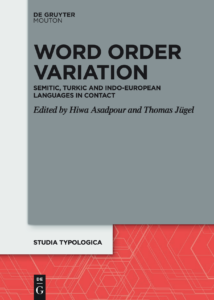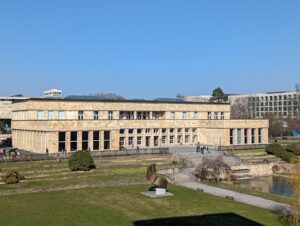 A new volume on Word Order Variation has been published in the series Studia Typologica [STTYP] (De Gruyter Mouton) by Hiwa Asadpour in collaboration with Thomas Jügel. The focus region is the Iranic-Semitic-Turkic contact area, where many languages are described as verb-final, ‘Targets’ (Goals, Recipients, etc.) tend to appear in the immediate postverbal position, a pattern violating the alleged ‘basic word order’. The volume will be available from August 1 on.
A new volume on Word Order Variation has been published in the series Studia Typologica [STTYP] (De Gruyter Mouton) by Hiwa Asadpour in collaboration with Thomas Jügel. The focus region is the Iranic-Semitic-Turkic contact area, where many languages are described as verb-final, ‘Targets’ (Goals, Recipients, etc.) tend to appear in the immediate postverbal position, a pattern violating the alleged ‘basic word order’. The volume will be available from August 1 on.
Investigating empirical material, the present volume examines the idea of its contact-induced origin by combining various languages Continue reading Asadpour co-edits volume on language contact

